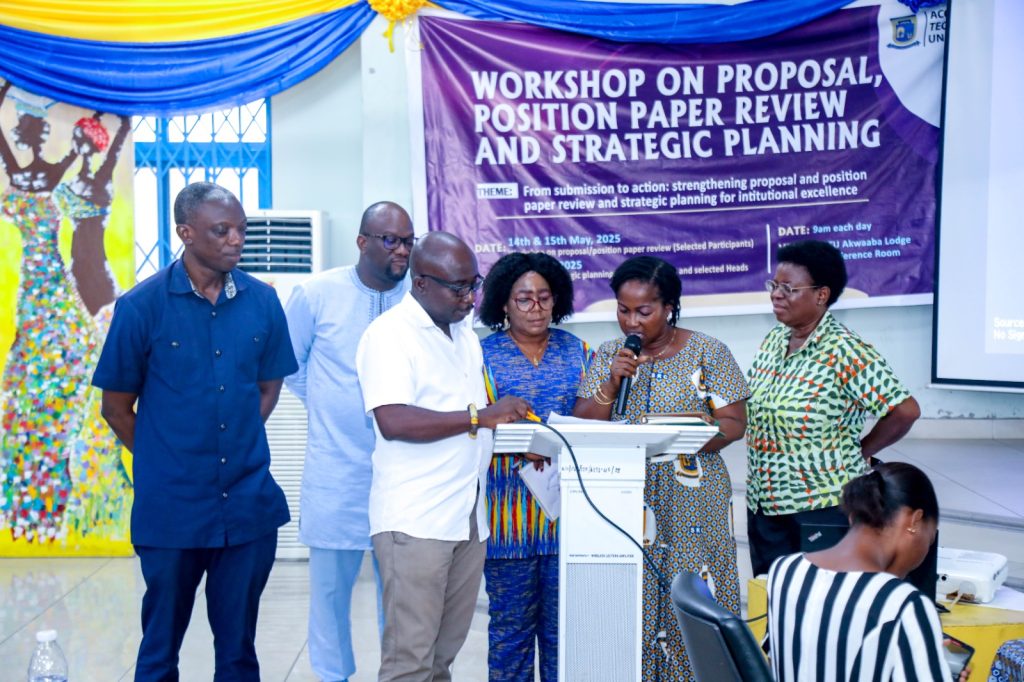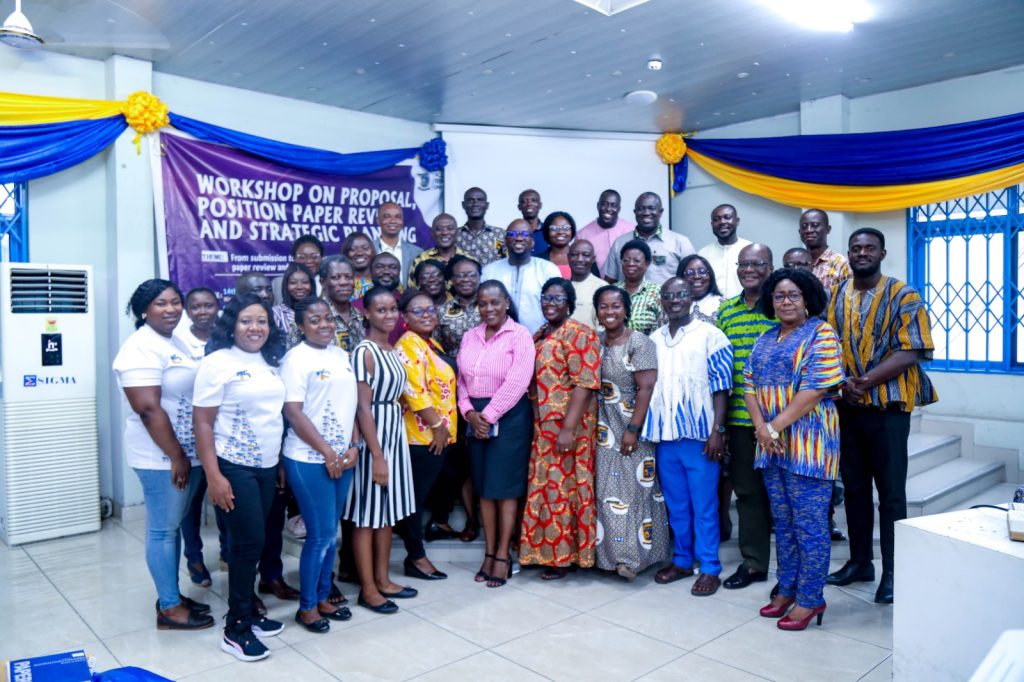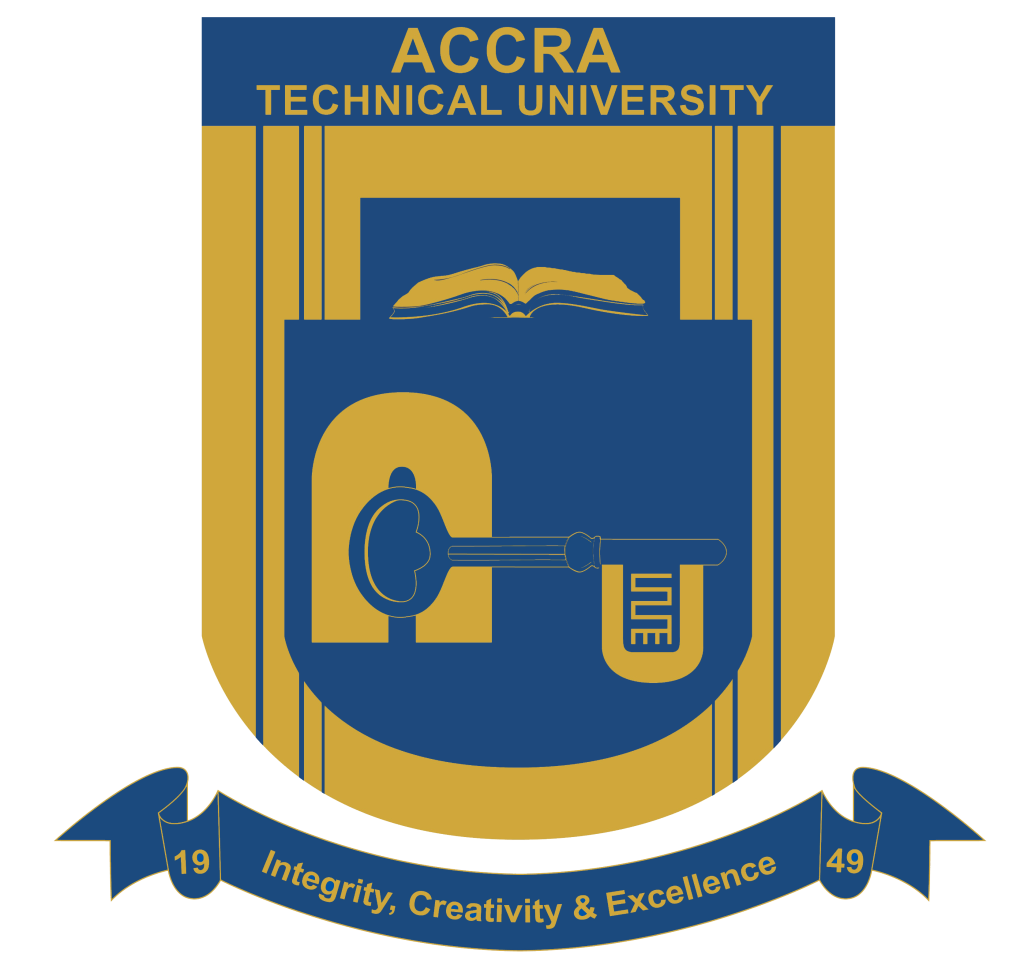In a bid to strengthen institutional capacity and drive transformational growth, the management of Accra Technical University has organised a workshop aimed at deepening understanding in proposal writing and position paper development. These two critical areas are seen as essential for shaping the University’s future through thoughtful ideas and impactful action.

The three-day workshop, themed From Submission to Action: Strengthening Proposal and Position Paper Review and Strategic Planning for Institutional Excellence, is the first of its kind at the University. It offers a platform for intellectual exchange, institutional reflection, and strategic co-creation. The event is being held from Wednesday, May 13, to Friday, May 16, 2025, at the University’s Guest Lodge.
Acting Vice-Chancellor of the University, Professor Amevi Ackapovi, underscored the importance of the workshop, urging participants to develop quality proposals that are free from plagiarism and aligned with the University’s strategic priorities. He emphasised the need for a rigorous review process to ensure due diligence and maintain high standards.
He described the workshop not just as a training session but as a platform that encourages critical thinking, institutional insight, and the transformation of ideas into actionable outcomes. He called on participants to commit fully to the sessions, learn from one another, and challenge conventional thinking to discover innovative ways of advancing the University’s mission in technical education.
Throughout the workshop, participants from various directorates, faculties, and departments will present proposals and position papers addressing prevailing issues within the University. These presentations are designed to spark constructive dialogue, foster innovation, and shape ideas into practical action points. Topics to be addressed span academic, administrative, fiscal, reputational, and environmental concerns.
A panel made up of senior members of the University will review the presentations, offering critical assessment and recommendations to guide implementation and achieve meaningful outcomes.
Professor Ackapovi praised the organisers for putting together what he described as an unprecedented initiative in the University’s history. He expressed particular delight in the fact that the workshop was successfully organised by an all-female team, describing it as a testament to the capability and empowerment of women within the institution.

